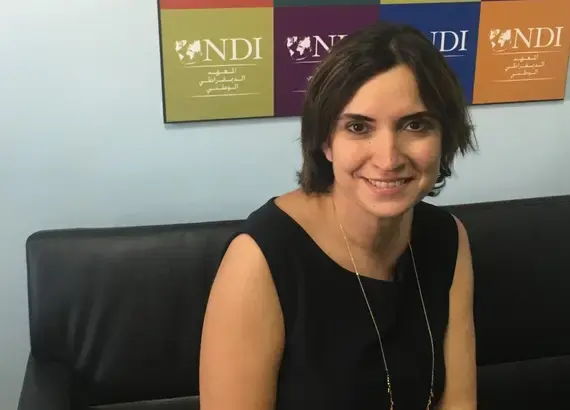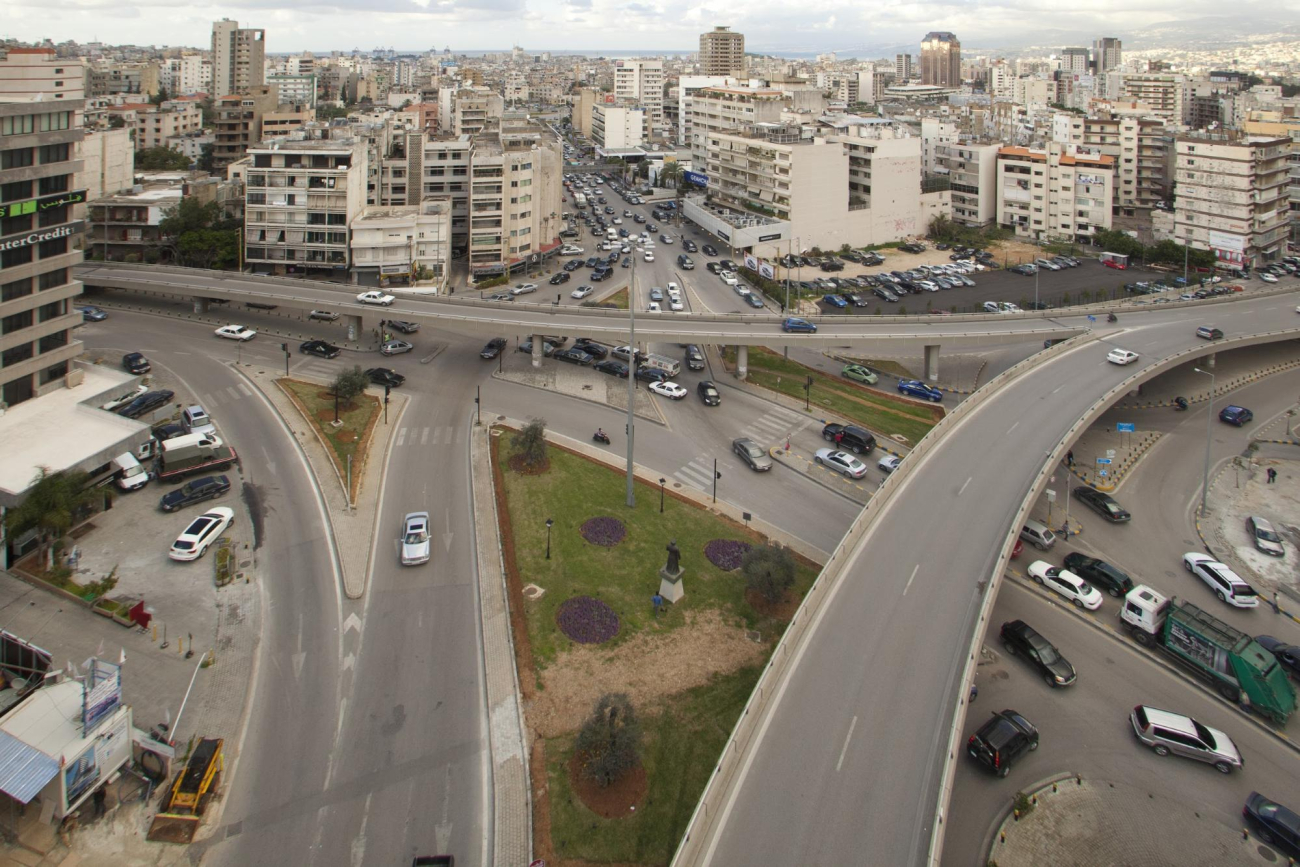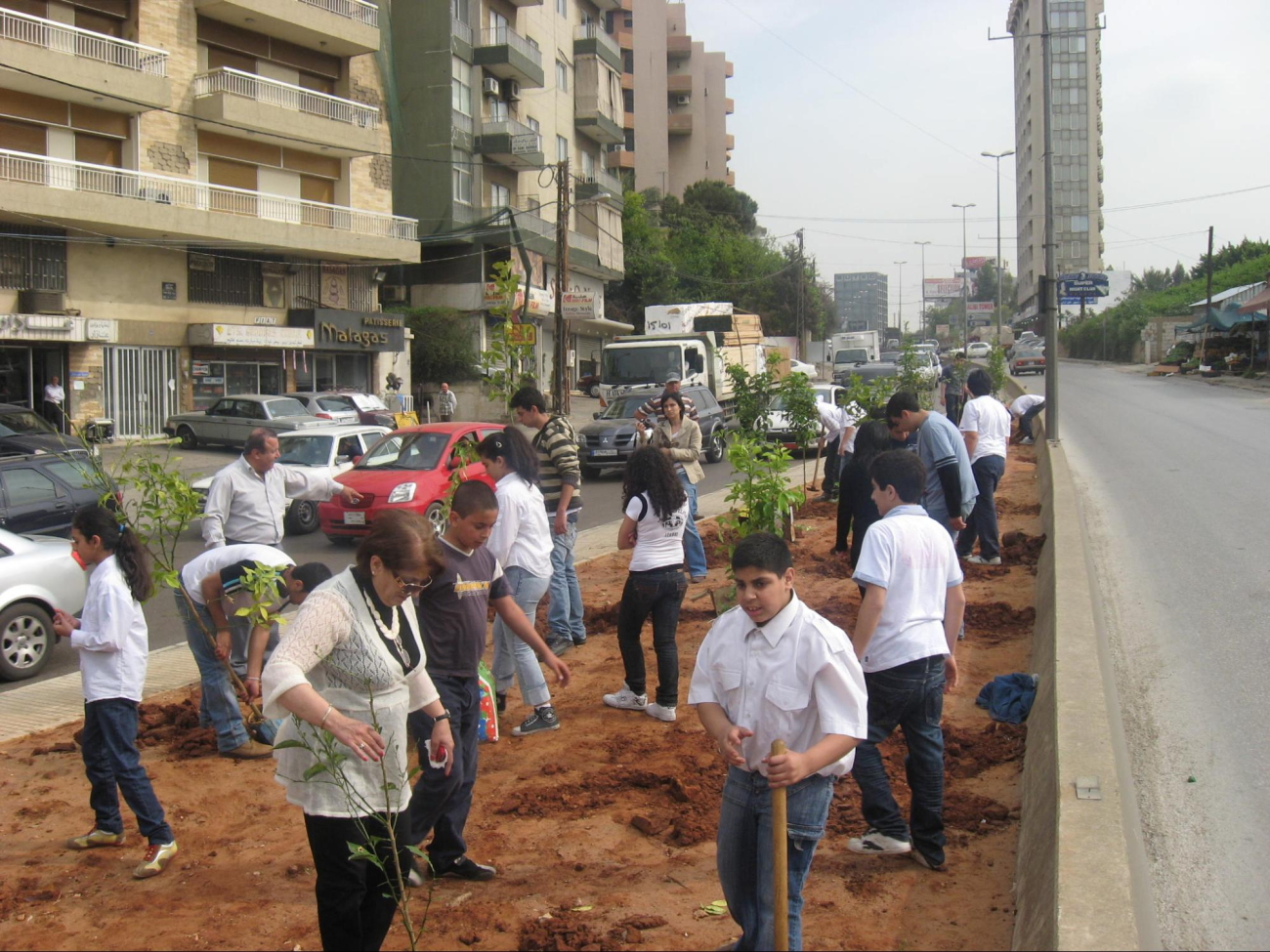
Vicky El-Khoury Zwein has been elected to represent her municipality in the Beirut suburbs twice, first in 2004 and again in 2016.
Success Story
Vicky Zwein: Moving the Ball Forward for Women in Lebanese Politics
When Vicky Zwein ran in municipal elections in 2004, she was already a young mother, aged 29, and was expecting another baby. She was nominated by her political party, the National Liberal Party, and with the support of her family and especially her husband she started canvassing her neighborhood. “People would tell me that it was not the right moment to run since I have children and that I need to take care of them. But my answer was, it’s BECAUSE I want to take care of my children that I am running.”
As a newly elected representative, Vicky had a solid base of knowledge as an activist from her involvement in the 1998 election, the first to be held after the civil war ended in Lebanon. But early in her first municipal term, she made a mistake that taught her the importance of being overly-prepared as a woman in politics. A highly technical discussion about infrastructure needs and equipment left her in the dark and she was embarrassed. However, the next time the discussion came up, Vicky was fully prepared and suggested the purchase of the right equipment to finish the job. Everyone acknowledged that in fact Vicky was the expert on this issue since she had carefully researched the cost and benefits. For Vicky, the lesson was clear: “Women need to know about ALL issues in order to be taken seriously in politics.”
Women need to know about ALL issues in order to be taken seriously in politics. - Vicky El-Khoury Zwein

After taking a pause when her first six-year term expired, Vicky decided to run again in 2016 and won a second time. This time the attitudes were different. “Being a woman was not really an issue,” Vicky recalled. “The question was really what could I bring to the list of candidates: credibility, more votes and expertise. When I won, everyone was very welcoming and congratulatory.” In fact, Vicky was the second highest vote getter and was only eclipsed by the head of the list she was running on.
There are still stereotypes about the role of women in politics, particularly when raising a family. Vicky - like other activists - is not satisfied with the small progress that Lebanese women have achieved and is still fighting for much more. For Vicky, there really should only be one requirement and that is to respect the woman’s choice on how to balance family, work and career.
Whether a woman wants to pursue a business, politics or raising a family, it is her choice and it should be respected. Whether I do that together or separately, it is my choice and no one should judge me.
While several women in Lebanon have been elected at the municipal level, there are only four who serve in the national parliament. In an informal discussion of women activists that Vicky participated in, several points of agreement were reached on how to make more progress for Lebanese women in politics. Ideas included:
Increasing the economic power of women so they are able to fund their own campaigns and can be considered as equals to men;
More networking among women to find natural allies;
Working to improve the image of women as politicians through the media and talk shows;
Showing that women can tackle any issue, not just those traditionally considered as family concerns;
Developing deeper relationships with political parties who increasingly have a self-interest to expand women's participation;
Fighting for a women's quota law to increase the numbers and visibility of women in politics.
Vicky attributes part of her success to what she has learned from working with NDI over the years. In 2005, right after her first election, she participated in NDI’s Win with Women training. NDI has taught Vicky how to be a better communicator, how to show her constituents she is making a difference and how to work more closely with political parties. Between her two terms in office Vicky joined the NDI “family” to help teach other women the skills she had learned over the years.

The changing Lebanese attitudes towards women's political participation is reflected in NDI polling. In a November 2015 poll, 85% said they would vote for a woman if given the opportunity. In a follow up June 2016 poll, after the municipal elections, 75% confirmed they had in fact voted for a woman.
Vicky has witnessed progress in the acceptance of women in politics in Lebanon in the last decade.NDI is thankful for the support provided by the State Department, USAID and the National Endowment for Democracy in expanding the role of women and citizens participation in Lebanon.



